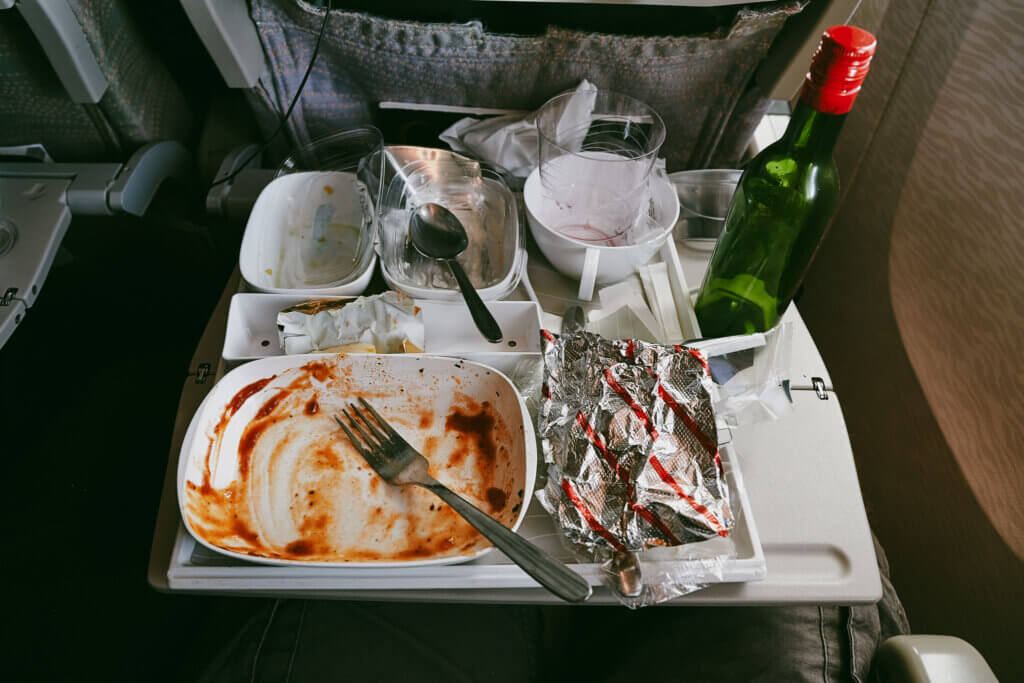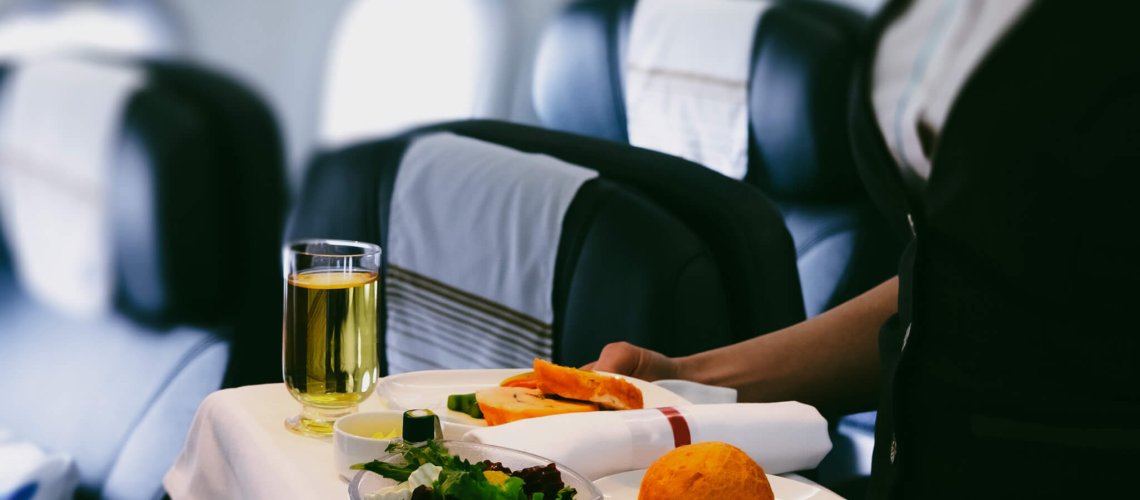Food waste is a growing concern across various sectors, but few industries are as unique and challenging when it comes to addressing this issue as the airline industry. Every year, airlines collectively generate millions of tons of food waste, leading to environmental, economic, and ethical dilemmas. Addressing this issue requires innovative strategies, collaboration, and a shift in mindset about how food is managed at 30,000 feet.
The scope of the problem
Airlines operate under stringent regulations, often leading to a surplus of food. These meals must meet high safety standards and cater to a variety of dietary preferences, resulting in a complex logistical system for food preparation and storage. Unfortunately, not all this food ends up being consumed by passengers. Leftovers, untouched meals, and expired products contribute to the large quantities of waste generated.
Audits undertaken by IATA and a number of airlines indicates that 20-25% of cabin waste is untouched food and beverages, and that airlines are incinerating or landfilling $2-3bn worth of resources1. Waste in landfills then produces methane, a potent greenhouse gas that contributes to climate change.
Key factors contributing to airline food waste
Overproduction
Airlines often prepare more meals than necessary to ensure they can accommodate all passengers, including those with special dietary needs. This can lead to a significant surplus of uneaten food.
Unpredictable passenger numbers
The exact number of passengers on a flight can fluctuate due to last-minute bookings, cancellations, and no-shows, making it difficult to precisely plan the number of meals needed.
In-flight catering regulations
International regulations often require that food served on flights be disposed of after landing, particularly on international routes. This means that even if food is perfectly edible, it may still be discarded due to health and safety rules.
Passenger preferences
Airlines must cater to a wide range of dietary preferences and restrictions, which can result in specialised meals that go uneaten if the intended passenger does not consume them.
Strategies for reducing food waste
Improved forecasting and meal planning
Advances in data analytics allow airlines to better predict passenger numbers and dietary preferences. By analysing historical data and using AI-driven forecasting models, airlines can reduce overproduction and ensure that meals are more closely matched to actual demand.
Collaboration with charities
Some airlines are partnering with local charities and food banks to donate untouched food after flights. This helps divert food from landfills and provides meals for people in need. However, these partnerships must navigate complex regulations, particularly for international flights.
Recycling and composting programmes
Airlines are increasingly adopting recycling and composting initiatives to divert food waste from landfills. Organic waste can be composted, while other materials like packaging can be recycled. Implementing such programs on a larger scale can significantly reduce the environmental impact of in-flight waste.
Packaging innovations
Airlines are exploring eco-friendly packaging solutions that reduce waste and are easier to recycle. Biodegradable or reusable containers can help minimise the waste generated from single-use plastic packaging commonly used in meal services.

On-demand meal services
Some airlines are experimenting with on-demand meal services, where passengers pre-select their meals before the flight. This allows airlines to prepare only what is needed, reducing food waste, and ensuring that passengers receive meals they are more likely to enjoy.
Passenger education
Educating passengers about the impact of food waste and encouraging them to be mindful of their consumption can help reduce waste. Airlines can include messaging in in-flight entertainment systems or provide tips during the booking process.
The role of technology
Technology plays a crucial role in the fight against food waste in the airline industry. Data-driven insights help airlines optimise meal production and reduce waste. For example, AI algorithms can analyse flight schedules, passenger data, and food preferences to make more accurate predictions about how much food should be prepared for each flight.
“KLM is wasting less food on board aircraft thanks to artificial intelligence. AI programmes enable the company to better predict how many passengers who have booked will actually board a flight. This allows the exact number of required meals to be calculated and KLM achieves up to 63% less food waste based on the expected number of passengers per flight. On an annual basis, this amounts to a saving of more than 100,000 kg of meals2.”
In addition, digital platforms can facilitate communication between airlines, caterers, and food donation organisations, making it easier to redistribute surplus food. These platforms can also track and report on waste reduction efforts, helping airlines measure their progress and continuously improve their sustainability initiatives.
Conclusion
Tackling food waste on airlines is a complex challenge, but it’s one that can no longer be ignored. By leveraging technology, improving forecasting and meal planning, and exploring innovative solutions like on-demand meal services, airlines can significantly reduce the amount of food they waste. Collaboration with charitable organisations and implementation of recycling and composting programmes further enhance these efforts.
As sustainability becomes an increasingly important focus for the airline industry, addressing food waste will be a key component in reducing the sector’s overall environmental impact. Through concerted efforts and creative thinking, airlines can turn food waste from a problem into a solution, benefiting both the planet and their bottom line.
MIDAS Travel takes a keen interest in our supplier offerings and how they are striving to reduce their impact on the environment. And, we work closely with clients to build sustainable business travel programmes that support company objectives. If you would like to discuss your requirements with our ESG team, then please get in touch.
USEFUL LINKS
- Sustainable Business Travel – MIDAS Travel Website
- Etihad Airways teams up with Lumitics to reduce inflight food wastage – Etihad Website
- Airlines tackle sustainability in new report – Dutyfree Magazine
Footnotes
- Cabin Waste Audit, May 2024 – IATA ↩︎
- KLM deploys artificial intelligence to combat food waste, Feb 2024 – KLM ↩︎

